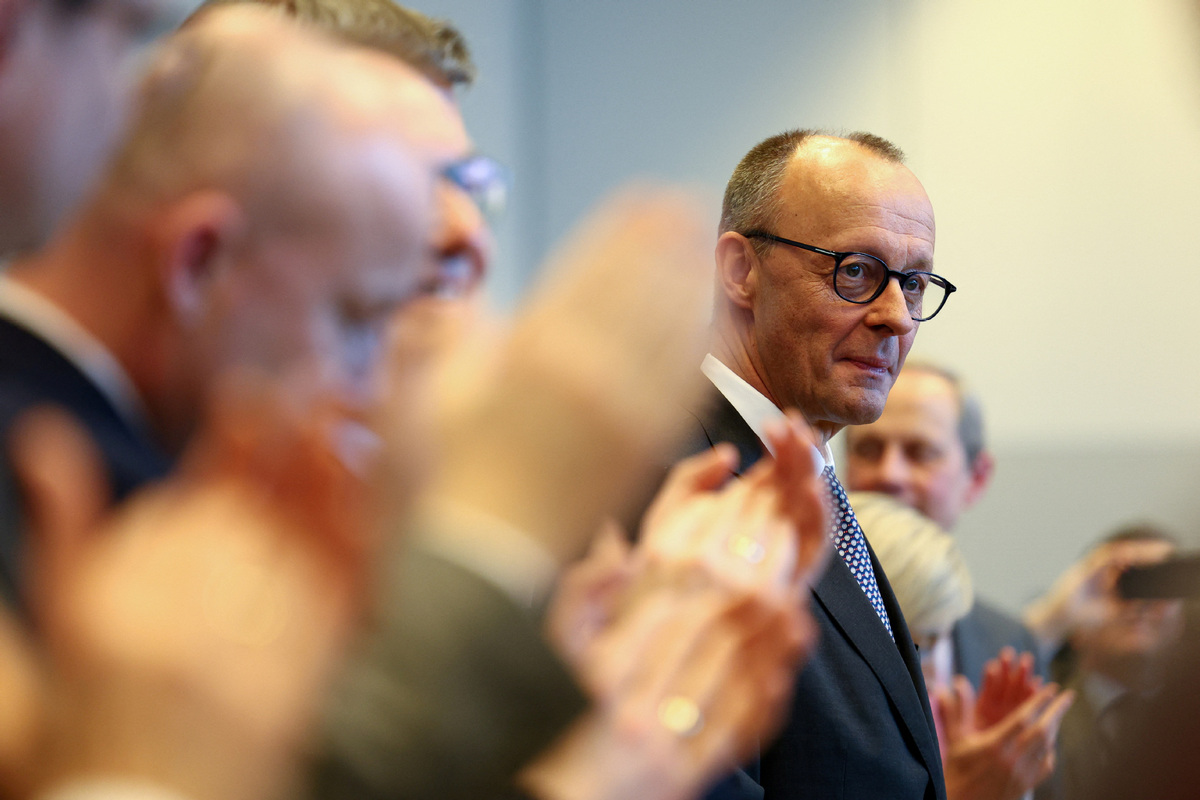
Christian Democratic Union (CDU) leader Friedrich Merz looks on as he is greeted with applause by the CDU and Christian Social Union (CSU) members before the start of their parliamentary fraction meeting following the German general elections, in Berlin, Germany, February 25, 2025. REUTERS/Lisi Niesner
Friedrich Merz has confirmed he hopes to form a coalition government featuring his Christian Democratic Union and the center-left Social Democratic Party, or SPD, following his party's triumph in elections for the German parliament on the weekend.
Merz's Christian Democratic Union and its conservative partner, the Christian Social Union, collectively known as the CDU-CSU, won 28.6 percent of votes, which translates into 208 seats in the 630-seat national assembly, the Bundestag.
The SPD, which headed the country's previous coalition government, finished in third place with 16.4 percent of the vote and 120 seats.
The far-right Alternative for Germany, or AfD, came in second place with 152 seats, but Merz has made it clear he will not consider it as a governing partner, and, referring to the colors traditionally associated with the parties, said he was keen to engage with the SPD.
"We have received a clear governing mandate, and we accept it," said Merz. "Looking at the Bundestag seat distribution, we are in a position to form a black (CDU-CSU) red (SPD) coalition, and that is precisely what we intend to do."
The previous coalition government of former SPD chancellor Olaf Scholz collapsed in November, which led to the election scheduled to take place later this year being brought forward to February.
Merz is expected to have talks with Scholz in the next few days and says he hopes to have a new coalition in place by Easter, as he faces up to a number of major domestic challenges.
These include Germany's faltering economy and tensions over immigration – an issue that was prominent in the election campaign – and also wider European security concerns, including the Russia-Ukraine conflict and future relations with the United States.
Markus Soder, leader of the CSU, told public broadcaster ARD that such issues mean it is vital that a coalition is formed soon.
"We have to pull ourselves together to form a government that solves our migration issues and our economic issues," he added.
In addition to a strong showing by AfD, the Left Party also won parliamentary seats, meaning it may exert some influence over what Merz is able to do as national leader, in particular when it comes to any potential changes to Germany's constitutionally enshrined debt restrictions.
"It is important that (Merz) now succeeds in mobilizing the financial resources for a strong German security and defense policy," Jana Puglierin, senior policy fellow at the European Council of Foreign Relations, told the Euronews website. "However, this may prove to be very difficult. If he wants to relax the debt brake or set up a second special fund for defense, he will need votes from either the AfD or the Left Party."
julian@mail.chinadailyuk.com